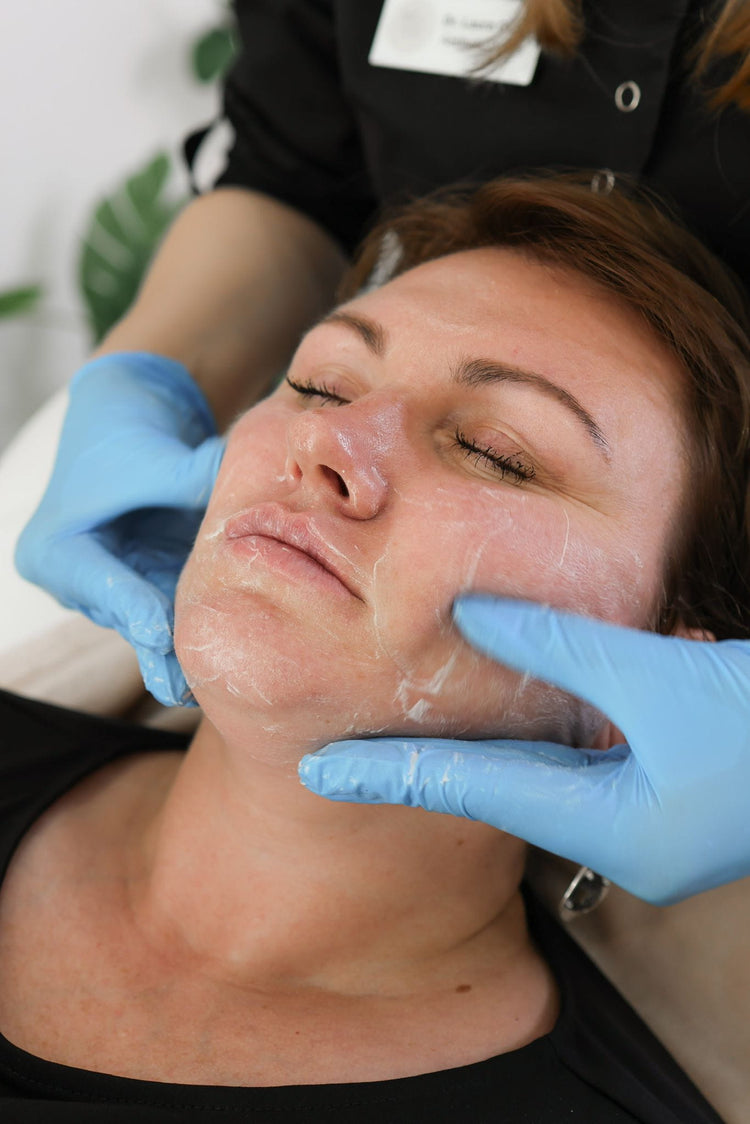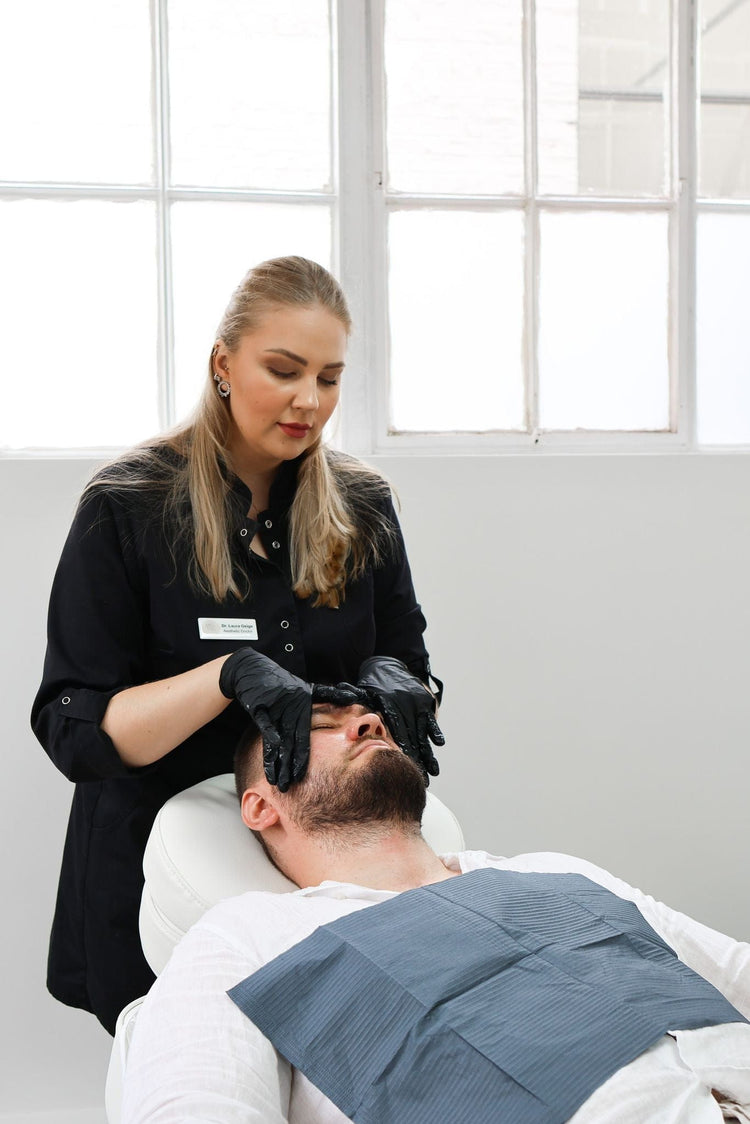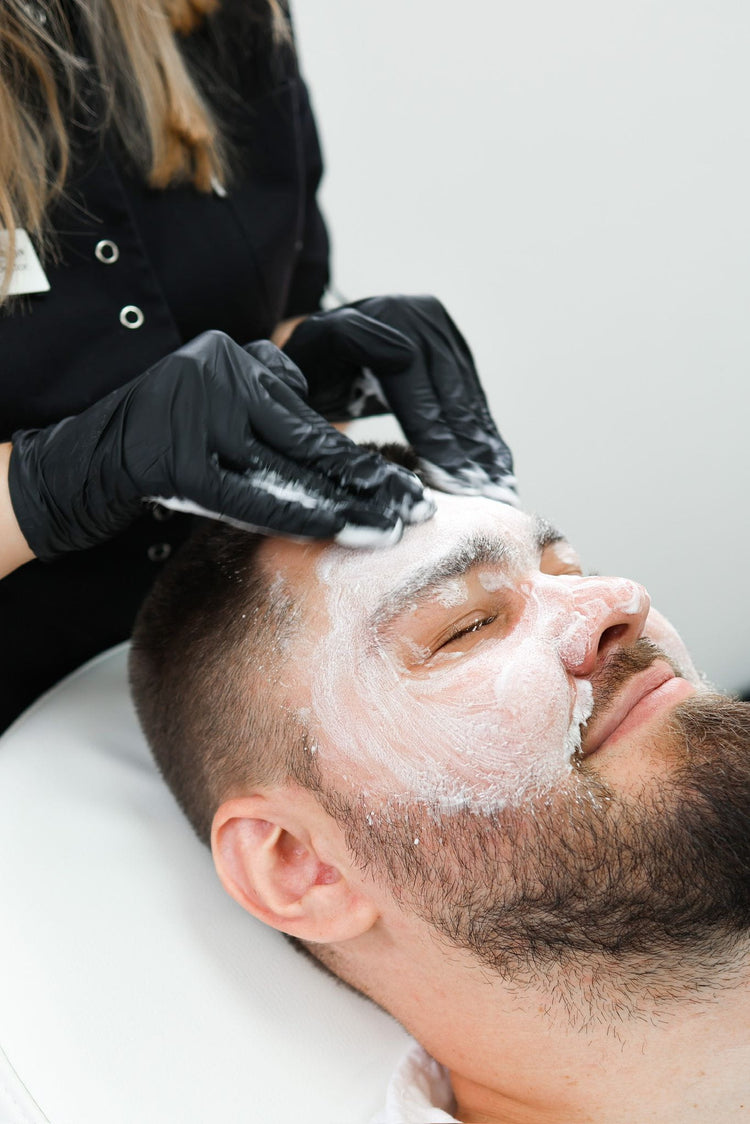Understanding Your Skin
Skin, our largest organ, acts as a protective barrier against the outside world, shielding us from harmful environmental factors. However, it’s also vulnerable to damage caused by sun exposure, pollution, and even internal factors like hormones and diet. Understanding your skin type and identifying potential issues early on is crucial for maintaining its health and preventing long-term damage.
Identifying Skin Type

One of the most effective ways to protect your skin is through regular skin consultations. A dermatologist can provide a personalized assessment of your skin, identifying your specific type and any underlying concerns. This in-depth understanding allows them to recommend tailored skincare routines, including products and lifestyle changes, that address your unique needs.
By understanding your skin’s individual characteristics, you can make informed decisions about sun protection, cleansing, moisturizing, and treatment options. For example, someone with oily skin may benefit from oil-free products, while those with dry skin require more hydrating formulas. Early detection of issues like acne, eczema, or pigmentation problems allows for timely intervention, preventing them from worsening and causing lasting damage.
Skin consultations empower you to take control of your skin health. They provide valuable knowledge and guidance, helping you navigate the complexities of skincare and protect your skin from potential harm.
Recognizing Individual Concerns
Recognizing individual concerns about your skin is the first step in maintaining its health. Everyone’s skin is unique, influenced by genetics, environment, and lifestyle factors. Some common concerns include acne, dryness, sensitivity, hyperpigmentation, and premature aging.
Understanding your specific concerns allows you to tailor your skincare routine and seek appropriate treatment. For example, if you struggle with acne, a dermatologist can recommend products containing salicylic acid or benzoyl peroxide. If you have dry skin, a hydrating moisturizer with hyaluronic acid may be beneficial. By addressing these concerns proactively, you can prevent them from escalating into more serious issues.
Paying attention to how your skin responds to different products and environmental factors is also crucial. Notice any changes in texture, appearance, or sensitivity. This awareness will help you identify potential triggers and adjust your routine accordingly.
Personalized Skincare Advice
The key to healthy skin lies in understanding its unique needs. Each individual’s skin type and concerns are influenced by a combination of genetics, lifestyle, and environmental factors. Recognizing these individual variations is essential for developing an effective skincare regimen that prevents damage and promotes long-term health.
Tailored Product Recommendations
Personalized skincare advice, tailored product recommendations, are key to preventing skin damage. Understanding your unique skin type and concerns allows you to make informed decisions about your skincare routine.
A dermatologist can provide an in-depth assessment of your skin, identifying its specific characteristics and any underlying issues. This personalized approach enables them to recommend products and lifestyle changes that address your individual needs. For example, someone with oily skin may benefit from oil-free products, while those with dry skin require more hydrating formulas.
Early detection of issues like acne, eczema, or hyperpigmentation allows for timely intervention, preventing them from worsening and causing lasting damage. By understanding how your skin reacts to different products and environmental factors, you can make adjustments to your routine and prevent further harm.
Customized Treatment Plans
Skin consultations are invaluable for preventing skin damage because they provide a personalized roadmap for skin health.
A dermatologist analyzes your unique skin type, identifying specific concerns like acne, dryness, or sensitivity.
Based on this assessment, they can recommend targeted skincare products and lifestyle modifications tailored to your needs.
For example, someone prone to acne might benefit from cleansers containing salicylic acid, while those with dry skin may need hydrating serums with hyaluronic acid.
Early detection of skin issues through regular consultations allows for prompt intervention. Addressing concerns like hyperpigmentation or eczema early can prevent them from escalating into more serious problems.
Addressing Specific Concerns
Personalized skincare advice is crucial for preventing skin damage because it recognizes that everyone’s skin is unique.
Factors like genetics, environment, and lifestyle contribute to individual skin concerns, such as acne, dryness, sensitivity, hyperpigmentation, or premature aging.
Understanding your specific concerns allows you to tailor your skincare routine and seek appropriate treatment.
For example, if you struggle with acne, a dermatologist can recommend products containing salicylic acid or benzoyl peroxide. If you have dry skin, a hydrating moisturizer with hyaluronic acid may be beneficial.
By addressing these concerns proactively, you can prevent them from escalating into more serious issues.
Early Detection and Prevention
Skin health is essential for overall well-being, and understanding your skin’s unique needs is crucial for prevention. Regular skin consultations provide valuable insight into your skin type and potential concerns, empowering you to take control of your skincare journey.

Spotting Signs of Damage Early
Recognizing individual concerns about your skin is the first step in maintaining its health. Everyone’s skin is unique, influenced by genetics, environment, and lifestyle factors. Some common concerns include acne, dryness, sensitivity, hyperpigmentation, and premature aging.
Understanding your specific concerns allows you to tailor your skincare routine and seek appropriate treatment. For example, if you struggle with acne, a dermatologist can recommend products containing salicylic acid or benzoyl peroxide. If you have dry skin, a hydrating moisturizer with hyaluronic acid may be beneficial. By addressing these concerns proactively, you can prevent them from escalating into more serious issues.
Paying attention to how your skin responds to different products and environmental factors is also crucial. Notice any changes in texture, appearance, or sensitivity. This awareness will help you identify potential triggers and adjust your routine accordingly.
Preventing Future Damage
Recognizing individual concerns about your skin is the first step in maintaining its health. Everyone’s skin is unique, influenced by genetics, environment, and lifestyle factors. Some common concerns include acne, dryness, sensitivity, hyperpigmentation, and premature aging.
Understanding your specific concerns allows you to tailor your skincare routine and seek appropriate treatment. For example, if you struggle with acne, a dermatologist can recommend products containing salicylic acid or benzoyl peroxide. If you have dry skin, a hydrating moisturizer with hyaluronic acid may be beneficial. By addressing these concerns proactively, you can prevent them from escalating into more serious issues.
Paying attention to how your skin responds to different products and environmental factors is also crucial. Notice any changes in texture, appearance, or sensitivity. This awareness will help you identify potential triggers and adjust your routine accordingly.
Lifestyle Modifications
Recognizing individual concerns about your skin is the first step in maintaining its health. Everyone’s skin is unique, influenced by genetics, environment, and lifestyle factors. Some common concerns include acne, dryness, sensitivity, hyperpigmentation, and premature aging. Understanding your specific concerns allows you to tailor your skincare routine and seek appropriate treatment. For example, if you struggle with acne, a dermatologist can recommend products containing salicylic acid or benzoyl peroxide. If you have dry skin, a hydrating moisturizer with hyaluronic acid may be beneficial. By addressing these concerns proactively, you can prevent them from escalating into more serious issues.

Paying attention to how your skin responds to different products and environmental factors is also crucial. Notice any changes in texture, appearance, or sensitivity. This awareness will help you identify potential triggers and adjust your routine accordingly.
Long-Term Skin Health
Long-term skin health starts with understanding your unique needs.
Building Healthy Habits
Building healthy habits for long-term skin health is essential for maintaining a youthful and vibrant complexion. Start by establishing a consistent skincare routine that addresses your specific skin type and concerns.
Sun protection is paramount in preventing premature aging and skin damage. Wear sunscreen with an SPF of 30 or higher daily, even on cloudy days, and reapply every two hours, especially after swimming or sweating.
Stay hydrated by drinking plenty of water throughout the day. Water helps flush out toxins, keeps your skin plump and hydrated.
Eat a balanced diet rich in fruits, vegetables, and whole grains. Nutrients like vitamins C and E, antioxidants, and healthy fats support skin health from within.
Get enough sleep to allow your skin time to regenerate and repair itself. Aim for 7-9 hours of quality sleep each night.
Manage stress through techniques like exercise, meditation, or yoga. Stress can negatively impact skin health, leading to breakouts and inflammation.
Listen to your skin and adjust your routine accordingly. Pay attention to how different products and environmental factors affect your skin, and don’t hesitate to seek professional advice from a dermatologist if needed.
Maintaining Consistent Skincare Routine
Long-term skin health is a journey that begins with understanding your unique needs and establishing healthy habits.
A consistent skincare routine tailored to your skin type is the foundation of long-term skin health. This routine should include cleansing, moisturizing, and sun protection.
Sun protection is crucial for preventing premature aging, hyperpigmentation, and skin cancer. Always wear sunscreen with an SPF of 30 or higher, even on cloudy days, and reapply every two hours, especially after swimming or sweating.
Diet plays a significant role in skin health. Consume a balanced diet rich in fruits, vegetables, lean protein, and healthy fats to provide your skin with the nutrients it needs to thrive.
Staying hydrated by drinking plenty of water throughout the day is essential for plump, healthy-looking skin.
Manage stress through techniques like exercise, meditation, or yoga. Stress can contribute to skin problems such as acne and eczema.
Regular skin consultations with a dermatologist can provide valuable insights into your skin’s unique needs.
A dermatologist can assess your skin type, identify any concerns, and recommend personalized skincare products and treatments.
They can also advise on lifestyle changes that can benefit your skin health.
Adjusting to Changing Needs
Long-term skin health is a journey that begins with understanding your unique needs. Just as we adjust our diets and exercise routines as we age, our skin care needs evolve too. Paying attention to these changes and adapting our approach is key to maintaining healthy, vibrant skin throughout life.
One of the most important aspects of long-term skin health is recognizing that your skincare routine isn’t a one-size-fits-all solution. As we age, our skin produces less collagen and elastin, leading to fine lines, wrinkles, and a loss of firmness. Hormonal changes can also impact skin texture, causing dryness or oiliness.
Therefore, it’s crucial to be flexible and adjust your routine as needed. This might involve switching from lightweight moisturizers in your twenties to richer creams in your forties, incorporating anti-aging ingredients like retinol or hyaluronic acid, or addressing specific concerns like age spots or hyperpigmentation.
Regular skin consultations with a dermatologist can provide invaluable guidance throughout this journey. They can assess your skin’s condition, identify any changes, and recommend personalized products and treatments to address your evolving needs.
Enquire about tackling skin concerns with skin treatments at It’s Me & You Clinic
- Why Do I Have Smoker’s Lines When I Don’t Smoke? - November 7, 2025
- What Is The Best Non-Surgical Facelift For Over 60? - November 6, 2025
- What Are The Best CBD Gummies For Energy And Mental Clarity - November 5, 2025
